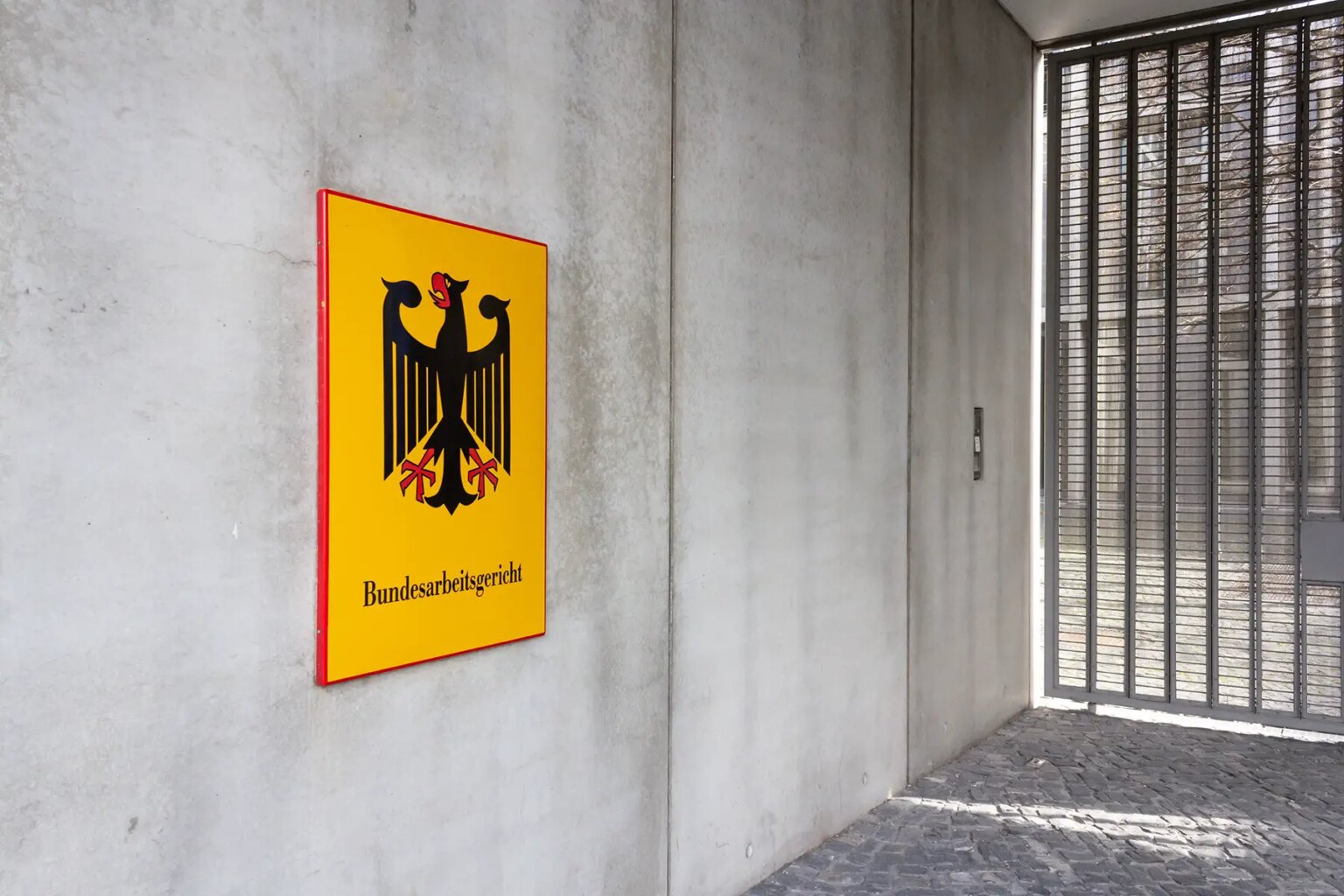It can be a challenge to understand German labor law when you are starting a new job in Germany. However, those wishing to do so can rest assured that the country has a well-earned reputation for protecting employee rights. Germany offers reasonable work hours, numerous public holidays, and a minimum of 20 days of paid holiday for most full-time employees. And, if there are any employment disputes, works councils will help to resolve them and represent the interests of employees.
Whether you are applying for jobs in Germany or settling into your new life in the country, this article provides an overview of German labor law, and includes the following information:
- Labor law in Germany
- Foreign workers: your right to work in Germany
- Employment contracts in Germany
- German wages and salary
- Work hours in Germany
- Paid and unpaid leave
- Parental rights in Germany
- Social security and tax in Germany
- Protection from discrimination at work
- Joining a union in Germany
- Health and safety at work
- Training and development in Germany
- Terminating the employment relationship
- Company mergers and insolvencies
- Temporary, part-time, agency, and informal workers
- Making a complaint as a worker in Germany
Wundertax
Rethink the way you do your tax returns with Wundertax. Their easy-to-use website guides expats through every step of the German tax return process, giving you more time to explore your new home. For simple and intuitive help in English, use Wundertax for your tax returns.
Labor law in Germany
There are a number of documents that outline German labor law, which is primarily the German Civil Code and federal laws like the Federal Act on Holidays (Bundesurlaubsgesetz). Other documents such as case law holdings, collective bargaining agreements, and employment contracts also influence labor rights in the country. As with other members of the European Union, German labor law provides comprehensive protections and rights to employees.

Germany’s labor laws regulate many aspects of employment, including employment contracts, working hours, wages, and holidays.
Foreign workers: your right to work in Germany
Foreign workers (i.e. those who are not a citizen of EU or EFTA States) are required to apply for a residence permit and obtain a work visa to access the German job market. There are multiple visas that grant a right to work in Germany. These include qualified professionals, IT professionals, job seekers, and self-employment pathways. Germany also recognizes the EU Blue Card, which is a highly skilled worker visa that allows the holder to work across EU countries. Work visas vary in length, ranging from six months (for jobseekers) to four years (for qualified professionals and EU Blue Card holders).
Companies can temporarily transfer employees to work in Germany with an Intra-corporate transferee (ICT) card. These are limited to a three-year duration for employees, managers, or specialists. Notably, an ICT card may also be granted to trainees for up to one year.
Employment contracts in Germany
German labor law does not require written employment contracts, but this is very much the norm in all business sectors. At a minimum, the employer must provide each employee with a written summary of the contractual terms within one month from the start of employment.
An employment contract should contain the basic terms of employment, such as salary, working hours, and annual leave. It is also common for employment contracts in Germany to include a probation period of up to six months. During this time, employment can be terminated with shortened notice and without a reason given for the termination.
Contracts do not have to be written in German to be binding. However, it is common for employers to provide non-German employees with an employment contract written in both German and the employee’s preferred language. In the event of a legal dispute, German courts require a German translation of the employment contract.
Open-ended contract
Notably, an open-ended contract, which is one that has no set end date, is standard in Germany, and only terminates with formal notice.
Fixed-term contract
A fixed-term contract means that the employment will only last for a set period of time. The contract ends at the end of the term, without a need for notice or formal termination. A fixed-term contract must be justified by objective reasons, such as providing coverage while an existing employee is on parental leave. It is important to note that fixed-term contracts cannot last for more than two years, and continuing the working relationship after the term ends will result in a presumed open-ended contract.
German wages and salary
According to the 2023 Salary Report by the online recruitment platform, StepStone, the average gross salary in Germany in 2023 is €43,800. The report also reveals that doctors are the highest earners in the country, while those working in the hotel and hospitality industry earn the least.

Interestingly, Germany has only had a minimum wage law on the national level since 2015 and increased it to €12 per hour in 2022. Minimum wages are often set out in collective agreements depending on the industry, but in the absence of one, an employee’s wages are outlined in their contract.
Salaries tend to vary by region, with those in the East falling behind those in the West by 15%. Notably, salaries in Berlin tend to match more closely with those in West Germany. Gender also impacts how much people earn in Germany, with women taking home on average 18% less than their male counterparts in 2022.
Work hours in Germany
Office hours in Germany vary but may start as early as 08:00 or end as late as 18:00. German labor law regulates work hours, and a single workday may not go beyond 10 hours of work. Overall work hours cannot average more than eight hours per day over a six-month period. Extended work hours are not common in Germany. In fact, Germans average 34.6 hours of work per week.
By law, working days in Germany include Monday to Saturday, and only limited sectors allow work on Sundays. An employee who works on a Sunday must also receive equivalent time off.
Collective bargaining agreements may further regulate work hours. For instance, it is common for them to define the work week as Monday to Friday.
Paid and unpaid leave
Holiday pay
Employees who work five days per week in Germany are entitled to 20 days of paid holiday per year. Part-time employees also receive paid holiday based on how much they work. For example, an employee working half-time would be entitled to half the amount of paid holiday per year.

Notably, many German employers offer more than the minimum paid holiday entitlement. In fact, it is common practice for them to offer between 25 and 30 days of paid holiday per year.
Germany also recognizes ten paid public holidays per year. However, some German states recognize additional public holidays, bringing the number of annual paid public holidays to as much as 13.
Sick pay
Employees in Germany are entitled to receive sick pay equal to 100% of their salary for up to six weeks. An employer can ask for a doctor’s note immediately after any sickness absence, however, most require this only when sickness lasts more than three days.
When an illness lasts longer than six weeks, the employee will continue to receive a sick allowance from either the national health insurer or a private insurer (if they hold private insurance). This allowance, under the national health insurer, will not exceed 70% of the employee’s salary and can be paid for up to 78 weeks.
Employees who need to take time off work to care for a sick child can receive either paid time off from their employer or apply for child sickness benefit if their employment contract or collective agreement does not allow for employer pay.
Unpaid leave
Employees are entitled to up to 10 days of unpaid leave to care for close relatives who are in urgent need of care. This unpaid leave does not require advance notice to the employer.
Employees may also be able to take nursing care leave to provide care to a close relative. This unpaid leave can be taken for up to six months but does require notice to the employer at least 10 working days in advance.
Parental rights in Germany
Your rights during your pregnancy
German labor law provides many protections during pregnancy. Most importantly, the dismissal of a pregnant woman is unlawful in the country. This protection extends until four months after delivery under the Maternity Protection Act.
Employers in Germany are also required to evaluate the workplace for hazards that could place pregnant or breastfeeding employees at risk. The employer must also develop a plan for avoiding these hazards and provide alternative work and breaks as needed.
Maternity and parental leave
Maternity and paternity leave
A mother can take maternity leave (Mutterschutzgesetz) beginning six weeks prior to the due date and continuing up to eight weeks after childbirth. Notably, this time can be amended in some instances, such as when a baby is premature or for multiple births.

Mothers receive their full salary during maternity leave. The government pays a maternity allowance up to a set amount. Any difference between the maternity allowance and the mother’s salary is then paid for by the employer. Mothers can apply for maternity benefits through the Federal Office for Social Security (Bundesamt für Soziale Sicherung).
Starting in 2024, new fathers will automatically receive two weeks of paid paternity leave (Vaterschaftsurlaub) following the birth of their child. Previously they had no statutory time off, except for the day of the birth itself.
Shared parental leave
Parental leave is available to working mothers and fathers during a child’s first three years. During this leave, the employer may only terminate employment in exceptional circumstances; for example, the shutdown of the business. Notably, eligible parents must live in the same household as the child and care for the child themselves.
Parental leave is unpaid, however, parents can apply for a supplemental allowance through the government. How much you receive in parental leave allowance depends on several factors, and you can use this calculator to estimate the eligible allowance.
Parental leave for self-employed workers
Women who have started a business or freelance in Germany are entitled to daily benefits during the maternity protection period if they have taken out a private sickness cash benefit insurance. The benefits amount will depend on the insurance coverage terms.
Returning to work after your parental leave
Parents returning to work after taking parental leave have the right to work at the same level they did before taking parental leave.
Breastfeeding mothers receive additional protection after taking parental leave, and those who cannot work for health protection reasons can receive a breastfeeding employment prohibition. This lasts as long as the mother is breastfeeding and the risk at work is still present. During this time, the mother will not work but will receive her full pre-maternity leave salary. Notably, a certificate from a doctor or midwife is usually needed before the breastfeeding employment prohibition is put in place.
Social security and tax in Germany
Social security contributions are paid on employment income to support the following:
- Pension insurance
- Unemployment insurance
- Health insurance
- Long-term care insurance
Employers make additional work accident scheme and insolvency contributions.
Interestingly, self-employed individuals generally don’t have to pay mandatory social security contributions. However, they are also not eligible for benefits like unemployment.
Income taxes are assessed on a banded scale based on overall earnings. These bands range from 0% for income up to €10,347, to 45% for income at €277,826 and above (effective 2023).
Protection from discrimination at work
Germany’s General Act on Equal Treatment (Allgemeine Gleichbehandlungsgesetz – AGG) prohibits discrimination on the grounds of sex, race and ethnic origin, disability, sexual identity, religion and worldview, age, part-time and/or fixed-term status, and trade union membership.

The law prohibits direct and indirect discrimination, as well as victimization. Victimization means a person has been treated less favorably because they have exercised their rights or refused to comply with an instruction to discriminate against another.
An employee who believes they have experienced discrimination in the workplace can file a claim with the Federal Anti-Discrimination Agency (FADA). Employees can bring a claim without meeting a minimum length of service.
Joining a union in Germany
Trade unions in Germany make general labor and collective bargaining agreements that apply nationally or to an entire industry. Just over 16% of Germans are members of trade unions. Unions can initiate strikes in some circumstances, however, who can strike and when is very complicated.
Works councils (Betriebsrat) are far more common in Germany. These representative groups function similarly to unions, but at a company level. Their goals include reducing workplace conflict, increasing employee bargaining power, and ensuring employee voices are heard when the company makes key decisions that affect them. Notably, companies with five or more employees must allow access to works councils, but only at the request of employees.
Health and safety at work
German labor law protects employees in the workplace through a variety of health and safety laws. For example, the Occupational Safety Act (Arbeitsschutzgesetz) requires employers to appoint occupational physicians to advise on accommodating employees with disabilities.
Ordinances such as the Workplace Ordinance (ASR) and the Hazardous Substances Ordinance (Gefahrstoffverordnung – GefStoffV) regulate how employers must equip employees and operate their business to maintain safety.
Training and development in Germany
Germany provides a wide variety of vocational training opportunities. Apprenticeships can be found in the Federal Employment Agency (Bundesagentur für Arbeit) job listings. German law requires training programs to offer pay, as well as all necessary equipment, during training.
Terminating the employment relationship
Dismissal
Dismissal from employment in Germany is often regulated by the Dismissal Protection Act – DPA (Kündigungsschutzgesetz). The DPA applies if the business has more than 10 employees, and the dismissed employee has worked in the same company for six months. Employees whose employment contract specifies a probation period can be dismissed from probation with two weeks’ notice and without a reason for the dismissal.
If the DPA applies, then dismissal has to be justified with an acceptable reason. Most general employee conduct reasons require a written warning to the employee before dismissal. An employee who believes they have been improperly dismissed can bring a dismissal protection claim against the employer. The most common remedy is reinstatement to employment, although settlement with a severance payment is the more common outcome. Severance payments in general are only paid when there is a provision for it in the employment contract or it is offered to settle a dispute.
German employers are required to give employees notice of an employment termination regardless of the reason for termination. The notice period increases with the time the employee has worked for the employer. Those with less than two years of work history with the employer must be given at least four weeks’ notice. However, employees with 10 to 11 years of history must be given at least four months’ notice.
Notably, freelancers do not receive the same protections as employees. A freelance contract will usually include an agreed notice period to terminate the contract, which can be for any length of time.
Leaving a job voluntarily
Employees are required to give notice before leaving their job. The minimum amount of required notice is four weeks. During the probation period, which is usually in the first six months, the required notice period can be as little as two weeks. However, notice periods for termination can be lengthened by the terms of the employment contract.
Employees must give notice to their employer in the form of a written letter. It is also common practice to request a written reference letter from the employer.
Redundancy
A redundancy dismissal has to be based on compelling business reasons. This means proving that the job no longer exists and there are no vacant positions in the company. To process a redundancy, the employer has to conduct a selection process among comparable employees before they can select an employee for redundancy. They may also be required to consult with their works council on an operational change.
Although employers are not required to provide redundancy pay, it is sometimes offered. The amount will be determined by the plan agreed upon between the employer and the works council.
Employers are required to notify the unemployment agency if they make more than a threshold number of employees redundant.
Retirement
Germany’s old-age pension is paid from the age of 65. However, this age threshold is being gradually raised under German labor law to 67 by 2031.
Employees can postpone retirement and earn a higher pension accrual for each month worked past retirement age. On the other hand, early retirement is possible from the age of 63 if the employee has contributed to their pension scheme for at least 35 years.
Company mergers and insolvencies
German companies planning a merger or takeover must notify the target company’s works council of the decision to submit an offer. However, if there is no works council, the notice goes to all employees of the target company.
Employees at a company that becomes insolvent are still due wages through their applicable notice period. If the employer does not pay the remaining wages, the employee can apply for compensation through the Federal Employment Agency.
Temporary, part-time, agency, and informal workers
Part-time employees are often given similar employment rights as regular employees under German labor law. Temporary and agency employees are also protected, but there tends to be more dispute in legal enforcement for these workers. This is because they are employed by one company, but perform work at another. German employment law has not been fully settled as to how legal requirements apply to these employees.
Making a complaint as a worker in Germany
Depending on the nature of the complaint, many employees first turn to their works council or trade union for assistance. Either entity can provide support in resolving the dispute. Employees who need to file a claim for discrimination can do so through the Federal Anti-Discrimination Agency (FADA).












